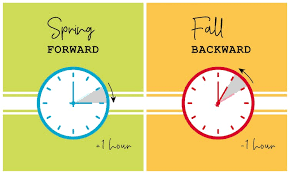Daylight Saving Time (DST) is the practice of setting the clocks forward by one hour during the warmer months to extend evening daylight and then setting them back again in the cooler months. Although the primary purpose of DST is to make better use of daylight, it can have various effects on our bodies, particularly during the transition periods when we "spring forward" or "fall back." Here are some ways DST can affect our bodies:
-
Sleep disruption: The most immediate effect of DST is the disruption of our sleep patterns. The sudden shift in time can cause difficulty falling asleep, staying asleep, or waking up at the desired time. This can lead to sleep deprivation, which can impair cognitive function, mood, and overall well-being.
-
Circadian rhythm disturbance: Our bodies operate on an internal biological clock known as the circadian rhythm, which is responsible for regulating sleep-wake cycles, hormone production, and other physiological processes. When the clocks change due to DST, it can take time for our circadian rhythms to adjust, leading to feelings of fatigue, grogginess, or irritability.
-
Mood changes: The disruption in sleep and circadian rhythms can also affect mood. Some people may experience increased irritability, anxiety, or depressive symptoms during the transition periods.
-
Impact on productivity and performance: Sleep deprivation and circadian rhythm disruptions can impair cognitive function, leading to decreased productivity and performance at work or school.
-
Increased risk of accidents: Sleep deprivation and changes in circadian rhythms can result in slower reaction times and decreased alertness, which can increase the risk of accidents, particularly in the days following the time change.
-
Health effects: Some studies have suggested that the disruption of sleep and circadian rhythms associated with DST may contribute to an increased risk of certain health issues, such as heart attacks, strokes, and other cardiovascular events. However, more research is needed to fully understand these connections.
To mitigate the effects of DST on our bodies, it's essential to maintain good sleep hygiene and gradually adjust our sleep schedules in the days leading up to the time change. Exposure to natural light, regular exercise, and avoiding excessive caffeine and alcohol can also help our bodies adjust more easily.


